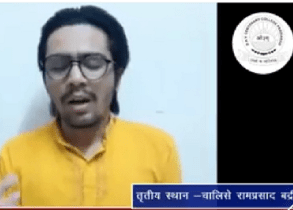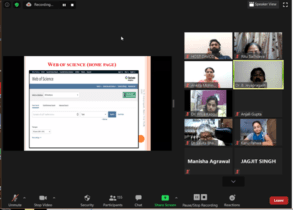National Webinar on “Role of EIA and Contemporary Environmental Issues in India”
A National Webinar on “Role of EIA and Contemporary Environmental Issues in India” was organized on August 07, 2020, at DAV Centenary College, Faridabad under the aegis of the Chief Patron, Padam Shri Dr. Punam Suri, President DAVCMC and Patron, officiating principal Dr. Savita Bhagat.
The webinar was started by Dr. Neeraj Singh, Assistant Professor in Environment Studies and convenor Environment club of the college with a formal welcome and greetings to all the webinar panelists, keynote speakers, faculty members, and participants who had joined from all over the country. Dr. Neeraj Singh briefed everyone about the theme of the webinar, the meaning of EIA, and emphasizing the need for academic scrutiny of various environmental policies. He discussed Resource depletion, pollution levels, diminishing wildlife due to rapid urbanization, industrialization, and modernization leading to an unsustainable lifestyle. He said the consumeristic approach needs to be changed urgently and explained the need for environmental discourse and how EIA is an important tool to correct the unsustainable doings of the past.
Dr. Savita Bhagat, officiating Principal, spoke on the importance of environmental awareness and said that this theme is even more relevant in the current times now as the whole world is struck with pandemic and we must understand that keeping our environment sustainable could be the only key for human existence in future. She solicited the panelists to highlight the importance of EIA in view of the recent EIA 2020 document and also what could be the potential outcomes of EIA modifications.
The panel discussion was started by Moderator Dr. Jitendra Soni – Resource person, from Government College, Sikar, Rajasthan.Dr. Jitender Soni is also a visiting scholar at North Texas University (USA). He briefed everyone about EIA history globally as well as in India and also the initiatives were taken. He stated that the new environment policy can potentially have a variety of implications especially it can impact the way initiatives are being taken for environmental protection. Then he started the panel discussion by inviting the keynote speaker Sh. Manoj Mishra (Rtd Indian forest service).
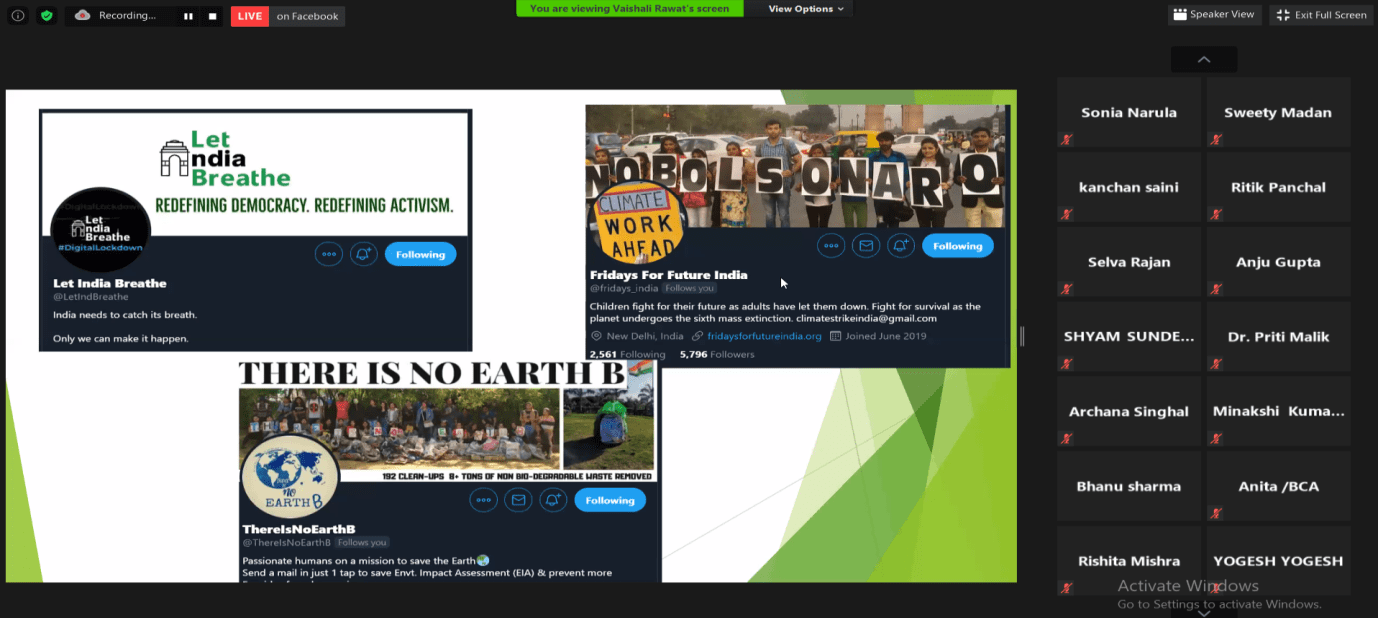
Shri Manoj Mishra has retired from Indian Forest Service and now the convenor of ‘Yamuna Jiye Abhiyan’. He explained the entire process of EIA with ease and simplicity. He said after the initial approvals involve EMP i.e. Environmental management plans the afterward public hearing, local people involvement, etc. are also some of the procedures that need to be followed. Then the final EIA report is prepared and submitted to the expert appraisal committee. He talked about procedures involved such as the role of the expert appraisal committee and how it is necessary to get approval from the Ministry of Environment at the state level and then at the central level from the Ministry of environment forest and climate change (MOEF& CC).
The panel discussion was continued by the next keynote speaker Ms. Prerna Singh Bindra. She is an Alumna of Cambridge University (UK) and a renowned Journalist, Writer, and wildlife conservationist focused mainly on wildlife conservation, flora, and fauna. She also shared some statistics which highlighted the alarming rate with which species are becoming threatened, endangered, and extinct to prove her point regarding the habitat and wildlife destruction. Concluding on an optimistic note Wildlife Conservator Ms. Prerna felt proud to call India, the largest wildlife protector. She said India should start more projects so that the rare species along with the wildlife of the country, forests can also be protected.
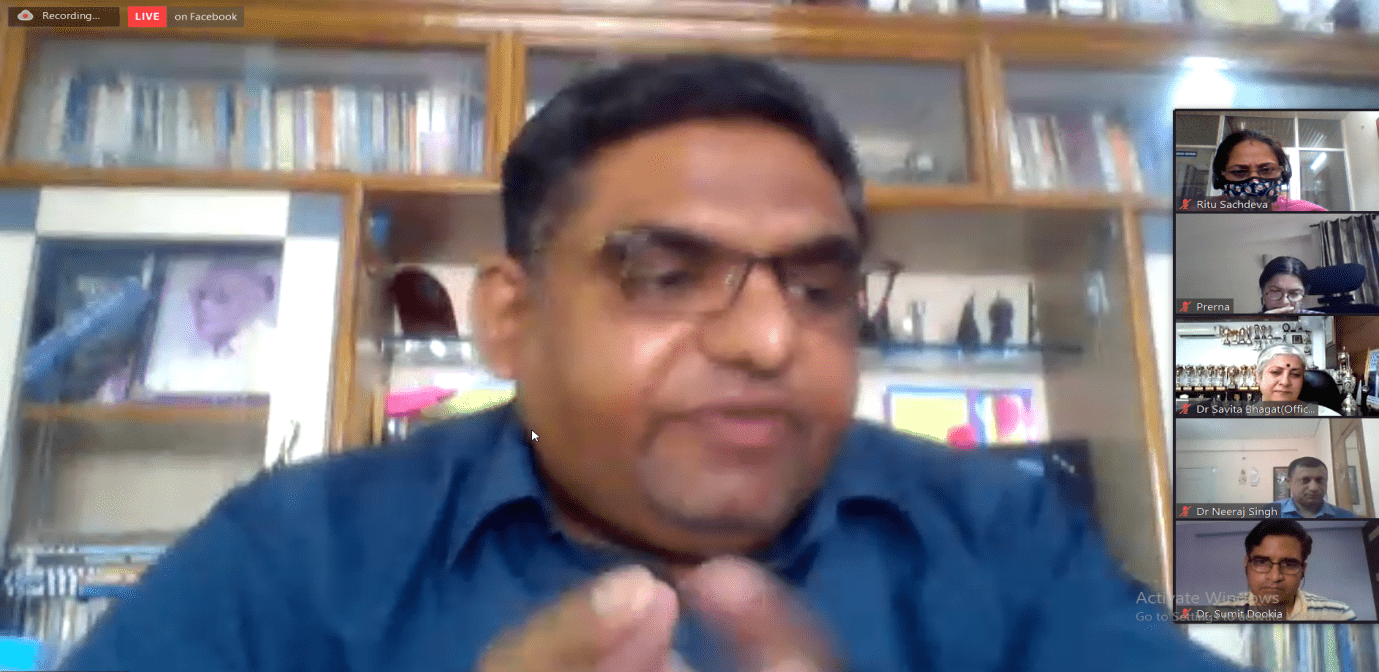
Next Panelist Dr. Sumit Dookia from GGS Indraprastha University shared some very grass root level case studies about endangered species from semi-arid and arid tracts of Rajasthan. He gave a detailed account of birds and animals residing in these water-deficient areas and how these dry ecosystems which are water and vegetation deficient thrive and what are potential threats. He reiterated the need for effective wildlife conservation approaches to be prepared and implemented especially for this region and discussed the case of Green Energy Project and Great Indian Bustard Conservation in Rajasthan.
She handed over the session to the next Panelist Ms. Vaishali Rawat. She is an Oxford University (UK) Alumna and wildlife conservationist, shared her views about biodiversity in India. She spoke at length about environmental concerns especially wildlife conservation. She gave a detailed account of various campaigns and activism aimed at highlighting threats and the need for conservation of wildlife. She said various campaigns launched at many places in India related to biodiversity destruction is being led by Youth and even younger students also and they are using innovative platforms like online campaigns, blogs, via twitter too and tools are very simple such as write-ups, placards, posters, etc
The next Panelist, Ms. Rita Chauhan, Regional Director IGNOU introduced the entire process of EIA notification draft with utmost ease and simplicity but at the same time going into necessary details too. Ms. Rita Chauhan was thorough about the whole process of EIA and she discussed step by step problems and existing lacuna at various implementation levels all the while discussing related environmental concerns on the parallel. She suggested the role of the EIA must be inclusive and strategies should be regional rather than project-specific and must ensure participation of the local people a mandatory step.
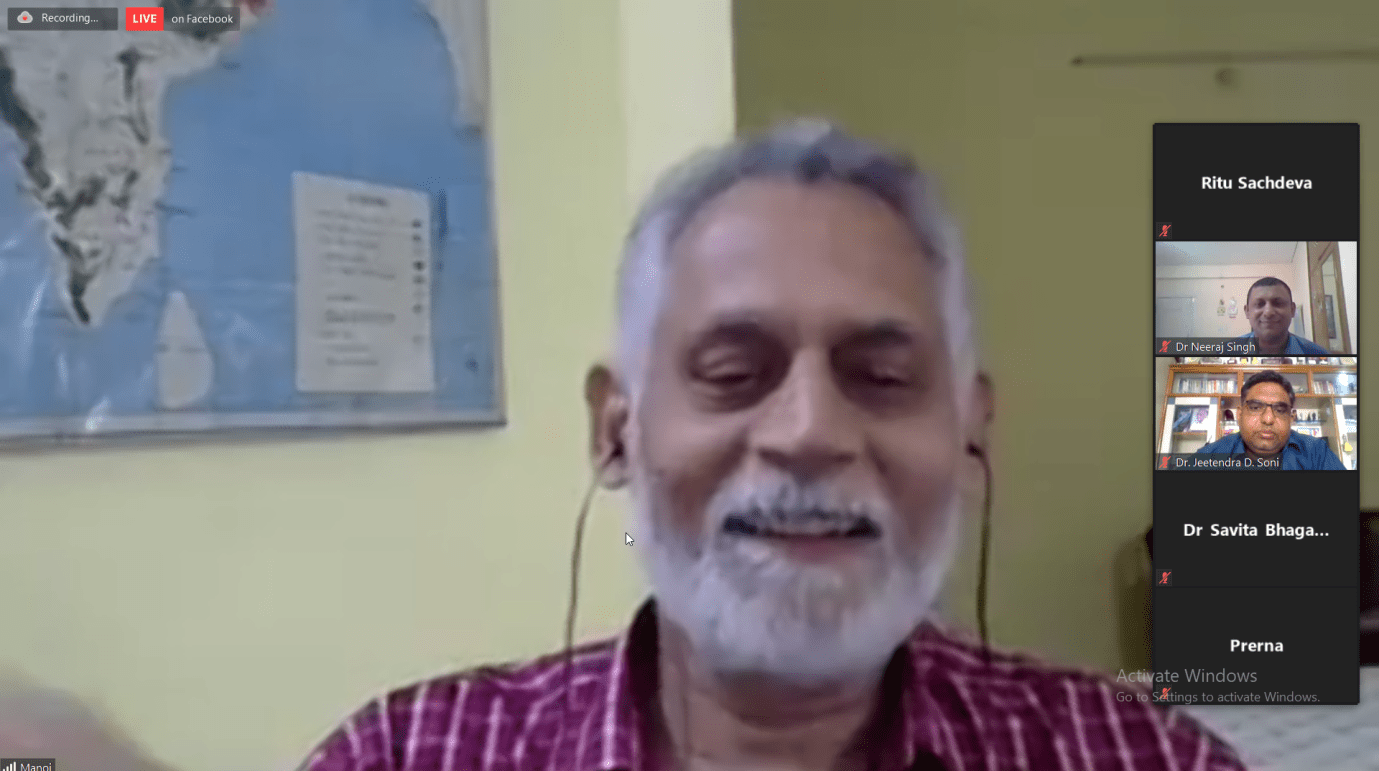
The session was handed to Dr. Prashant. He is the Faculty of Central University of South Bihar, Gaya. He spoke at length about EIA need and he said EIA approval is like passing an examination. Talked about clearances at various levels A Level B level etc. He emphasized on the need for the public hearing and taking responses to write. He also advocated the need for the establishment of a Public Participation Forum, in which citizenry can discuss, take advice from experts.
At the end of the webinar, there was Q & A sessions were conducted. Many questions have been asked by participants. The resource persons of the session replied thoroughly.
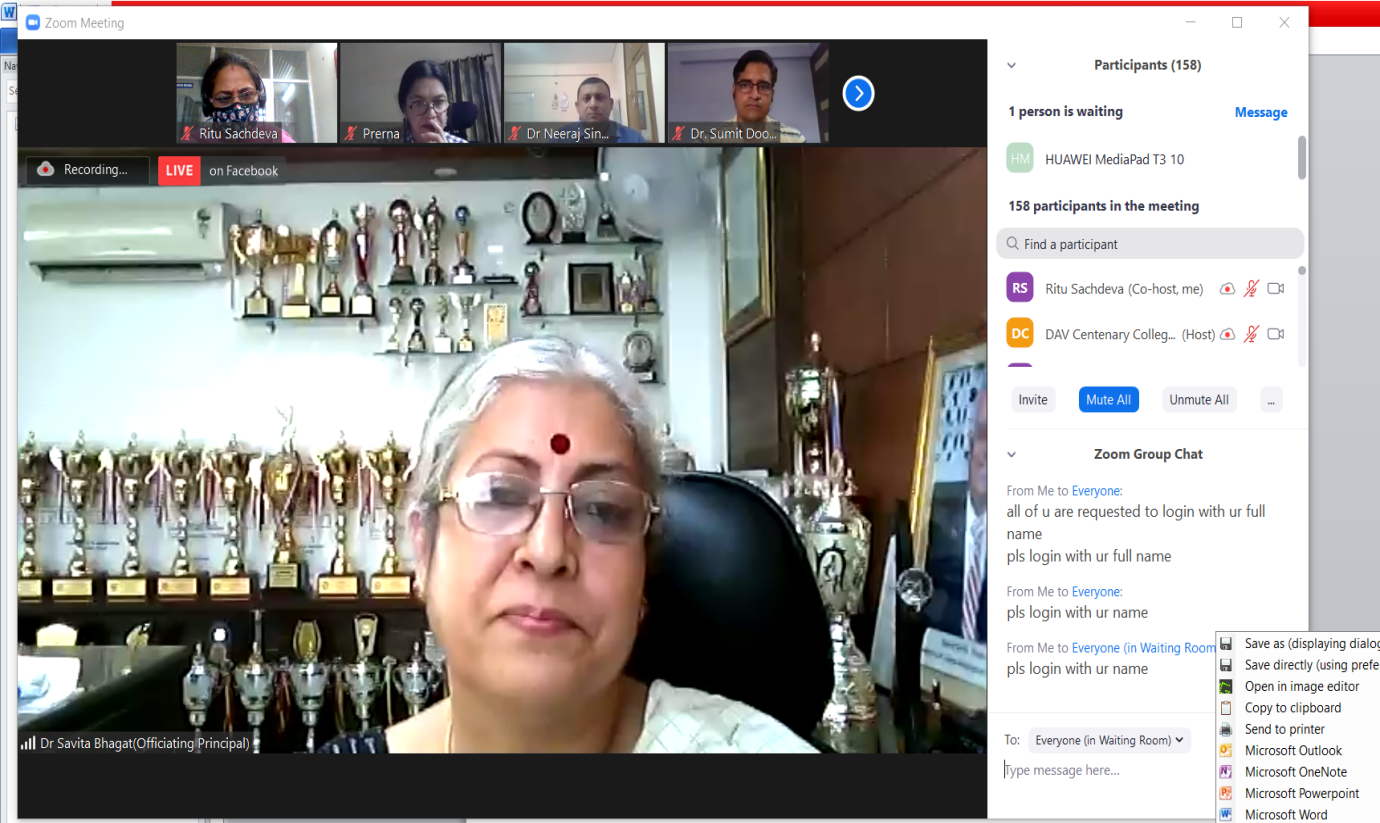
At last, Dr. Neeraj Singh Convenor of the program expressed special thanks to all the keynote speakers as panel members. Around 600 participants including faculty members across India from Universities, Colleges, Institutions, experts, environmental activists, students, etc attended this webinar, He extended his thanks to those who not only logged on throughout but also listened to the panelists patiently and then asked very pertinent questions. He thanked Dr. Savita Bhagat, the officiating principal of D.A.V. Centenary College for initiating and organization this webinar as well as technical team Mr. Pramod Kumar, Mr. Dinesh Kumar, Dr. Priya Kapoor, Ms. Ritu Sachdeva and Mr. Saroj Kumar for helping out in running the session smoothly. He was also thankful to the organizing team.


